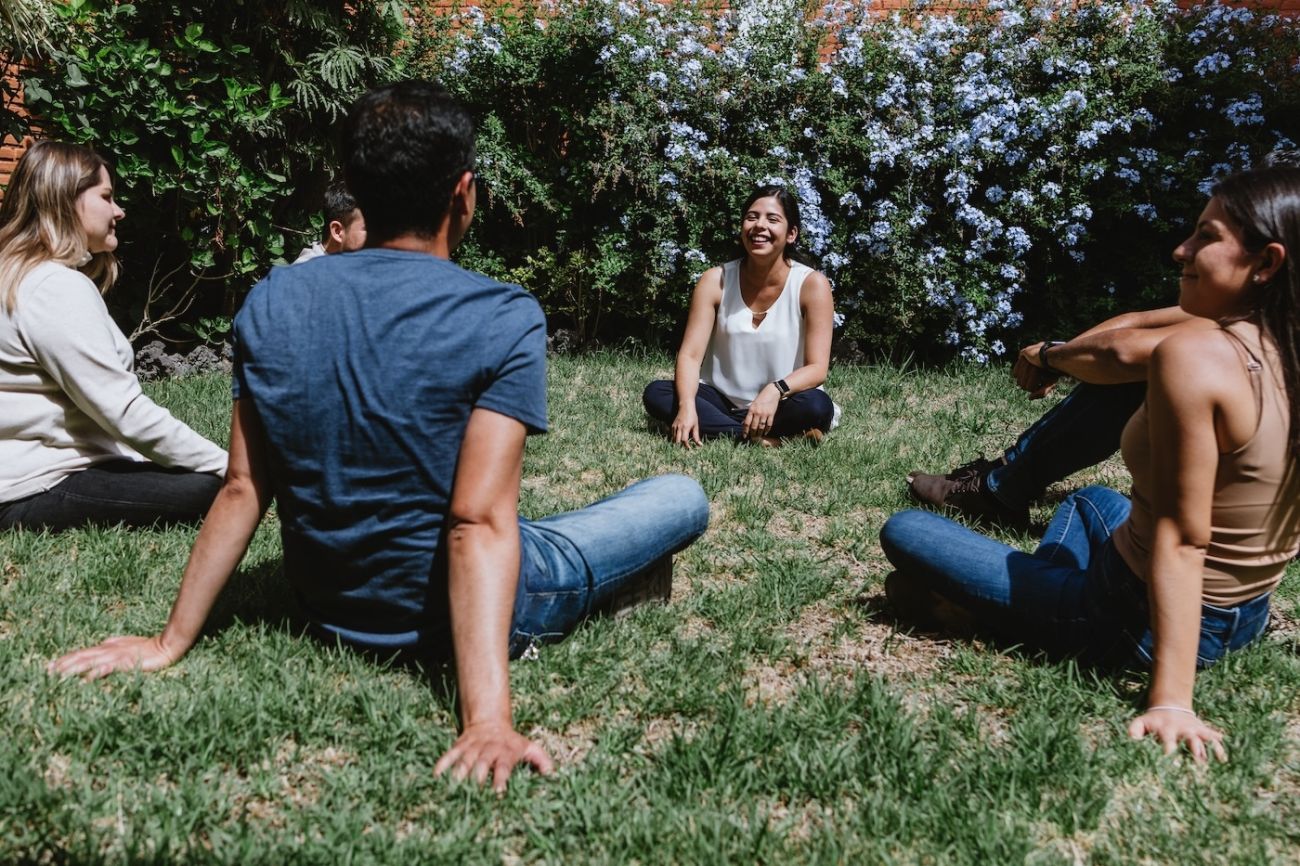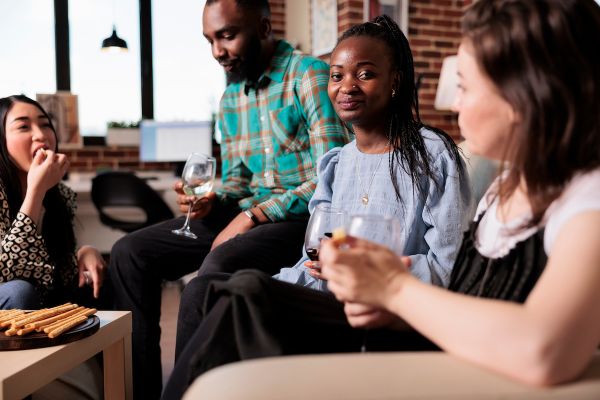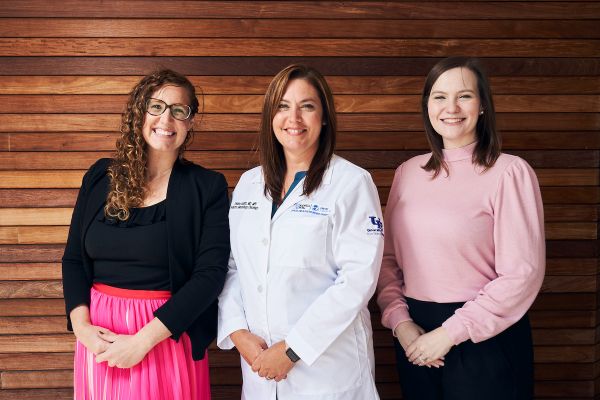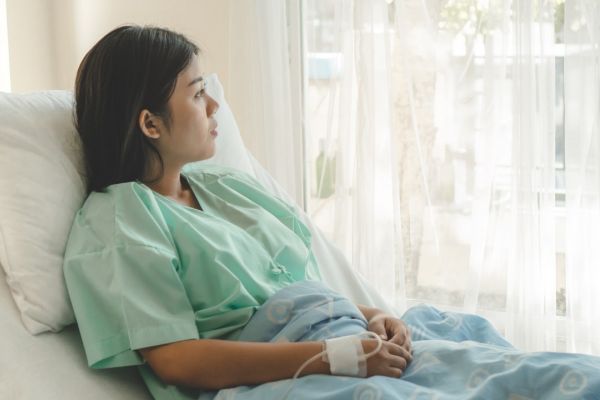Roswell Park offers unique, holistic services for patients in their 20s and 30s.
It’s still early in 2024, but the year is already proving to be one filled with significant increases. Climate scientists are predicting global temperatures will shatter last year’s record-breaking heat. More Americans than ever before in history will celebrate their 65th birthdays. Artificial Intelligence (AI) is continuing to grow at a rapid pace.
Unfortunately, cancer is also on the rise, most significantly for young adults. In its recently released Cancer Statistics for 2024, the American Cancer Society projected more than two million new cancer cases will occur in the United States in 2024, a record high. While rates among those 50 years and older have decreased, recent studies show that globally, the incidence of early-onset cancers — cancer before age 50 — is increasing significantly.
Cause of increased cancers in young adults remains unclear
Some researchers attribute the rise in cancer rates to the birth cohort effect, which identifies common experiences for people born in the same time period. Diet, lifestyle, weight and environmental exposures are all considered to be contributors to early onset cancers for young adults. Microbiomes, the organisms that protect against germs, break down food to release energy and produce vitamins, also are having an impact on young adults’ physiology both in health and disease.
Early detection also may play a role in rising cancer statistics for young adults, says Ashley King, Roswell Park Comprehensive Cancer Center’s Wellness Program Coordinator for young adult cancer care. “Over the last few years, we’ve seen an increased level of health and wellness awareness in younger adults,” says King. “This is an age group that is more likely to advocate for themselves, pay attention and follow up if they experience chronic conditions like headaches or bloating that doesn’t go away.”
Young adult patients face different challenges
King, along with physician Denise Rokitka, MD, MPH, and medical psychologist Erin Brewer-Spritzer, PsyD, are part of Roswell Park’s Young Adult Program. Dedicated to supporting young adults with cancer, the program offers a range of specifically designed services including fertility preservation, mental health counseling, financial counseling, social support, sexual health clinic, survivorship and more.
“There are different challenges that come with cancer when you’re a young adult. You might be in college and grappling with how to continue with classes and assignments during treatment. You could be starting a new career or dating relationship and feel unsure about how to talk about your cancer,” says King. “Parents may need support around how to explain to their children what’s happening or consider options for family planning. It’s normal to feel anxious, financially burdened, or concerned about the future. We’re here to offer the mental, physical, emotional and psychosocial support people need in addition to the care they’re getting from their medical treatment team.”
Why Roswell Park for young adults?
You need a team that understands the nuances of treating cancer in young adult, as well as the emotional, mental and physical side effects that come with it.
Survivorship programs are key
King notes that survivorship programs are particularly important to young adults because of the isolation they often experience not only during treatments, but when they finish. “Young adult patients tell us some of the biggest challenges occur when family and friends say, ‘Okay, you're done. You're good. You're all back to normal, everything's good.’ Survivors need time to breathe and reflect on what they’ve been through. It’s a very powerful experience and being able to share those feelings with people who understand is critical.”
Roswell Park’s young adult survivorship events are free of charge and include family events, monthly coffee nights, speakers, wellness workshops, support groups and networking opportunities. “Our in-person groups are open to all, at any stage of the cancer journey,” says King, who notes that you don’t need to be a Roswell Park patient to participate. “We see how it is important for people to connect with a supportive community and be in touch with people who share similar experiences and stories. Not only do these groups provide incredible support, but they’re also validating for patients and caregivers who are able to meet and share with others who have had similar symptoms, side effects, questions and concerns.”
For young adults who are busy building careers, relationships, young families and financial futures, having access to support and services also can help promote hope and resilience during times when they may feel burdened by the extra challenges that cancer brings. “We provide that extra support to help patients feel empowered through their journey and through survivorship," says King. "It’s remarkable to see the invisible weight that is lifted from a patient’s shoulders when they walk into a room of people who just get it. They don't have to explain why they don't have eyebrows or why they have a flat chest or why they're carrying an oxygen tank.
"Being with others who will listen and understand what they’re going through is so powerful. Whether we're doing something restorative like getting facials or out to dinner as a group, we see patients open up about huge life changes, losses and side effects. There are also times we don't talk about cancer. It’s equally powerful to sometimes take a break from being a cancer patient. Most of us don’t realize how hard that is to do but there's tremendous freedom that comes when people are surrounded by support.”



